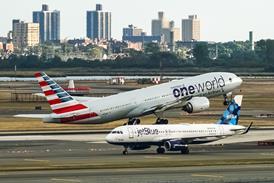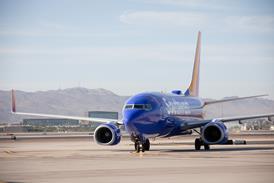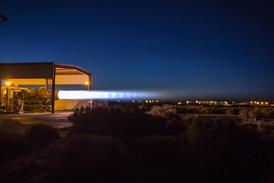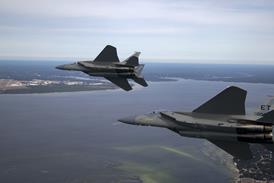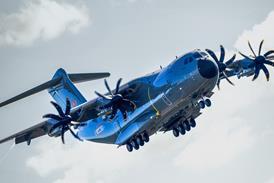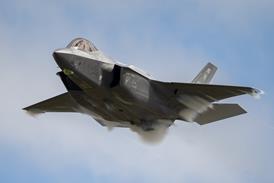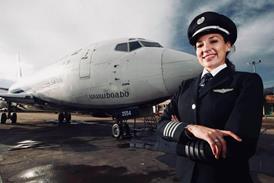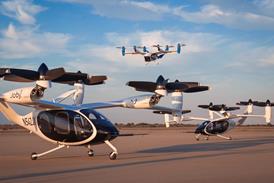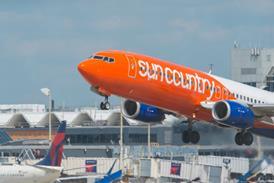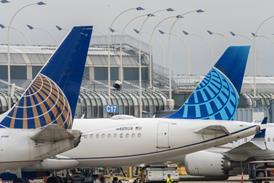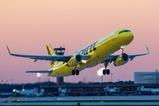Upcoming holiday air travel is likely to break records in the USA as major airlines prepare for the operationally challenging winter season.
The US Transportation Security Administration says it expects to screen more than 18 million airline passengers from 26 November to 2 December, a 6% increase over the same period of last year.
The roughly week-long Thanksgiving travel period is historically the year’s busiest for US airlines. This year, more airline customers are booking international flights over the holidays – particularly to European cities.
Booking data from the American Automobile Association (AAA) indicates international reservations are up by 23% “in part because the cost to fly internationally is down” about 5%, AAA says.
United Airlines says it is gearing up for its “busiest holiday travel season on record” – which includes the Thanksgiving, Christmas and New Year holidays – as it expects to move some 25 million passengers.
The Chicago-headquartered carrier notes surging demand for air travel to Europe during the Christmas period, with bookings to cities such as London, Frankfurt, Munich, Paris and Brussels up nearly 10% over last year – and 30% over pre-pandemic 2019 levels.
“The European Christmas markets have become even more popular in recent years,” says Darren Scott, United’s director of Atlantic and Hawaii planning.
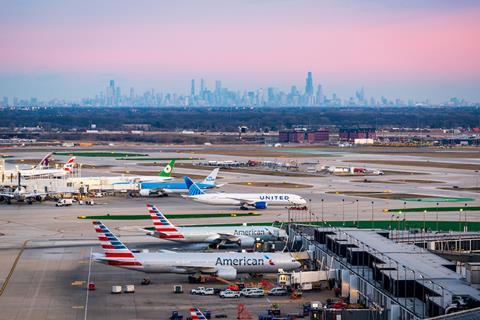
Compared with last year, American Airlines expects to fly an extra 500,000 passengers during the Thanksgiving holiday period, which it broadly defines as 21 November-3 December.
American expects to fly a total of 8.3 million passengers via 77,000 flights during that operational window. Its busiest day during the Thanksgiving period is set to come on 1 December, with more than 1,000 aircraft simultaneously en route during its highest peak.
The surge is extending to US regional airlines, as well. St Louis-based GoJet Airlines, which flies regional jets under the United Express brand on behalf of United, says its number of scheduled flights during the holidays is expected to increase about 40%, year on year.
GoJet says its days of highest demand for Thanksgiving travel will be 26 November and 29 November.
The carrier attributes the higher holiday demand to broader trends as well as its own growth, as GoJet has been rapidly adding aircraft to its fleet, hiring pilots and expanding the breadth of its operations.
CAUTION TO THE WIND
US carriers are bracing for inclement weather in the near-term forecast, with a so-called “bomb cyclone” set to deliver heavy rain and snowfall to much of the West Coast starting on 20 November.
Storms will ”unfold across the lower 48 this week with areas of heavy rain, snow and wind”, with the eastward-moving storm set to impact the Midwest and Northeast USA.
The storm warning is in effect through 22 November. Longer-term forecasts suggest conditions in much of the USA could improve for the height of the Thanksgiving travel period.
In anticipation of winter weather, United says it will ”prepare approximately 150 de-icing trucks to ensure aircraft are ready for flights despite lower temperatures”.
Fort Worth-based American says it is coming off its “best-ever October for on-time departures” and it expects more strong performances ahead. “American is staffed and prepared for winter weather, with team members trained for de-icing and expanded capacity at airports like Chicago O’Hare.”
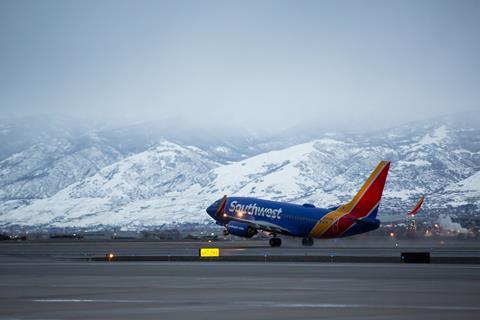
While the winter holidays represent a potentially lucrative period for US airlines, strong weather in recent years has thrown some of their operations askew.
Most severely, Southwest Airlines was forced to cancel about 17,000 flights starting in December 2022 after a winter storm set off an operational meltdown compounded by technology issues.
Southwest lost track of its aircraft and crews and re-set its network, disrupting holiday travel for hundreds of thousands of customers.
The episode resulted in intense scrutiny of Southwest from US lawmakers and fines by the US Department of Transportation. Southwest has since implemented IT upgrades and maintains that it is better prepared for winter weather disruptions.



